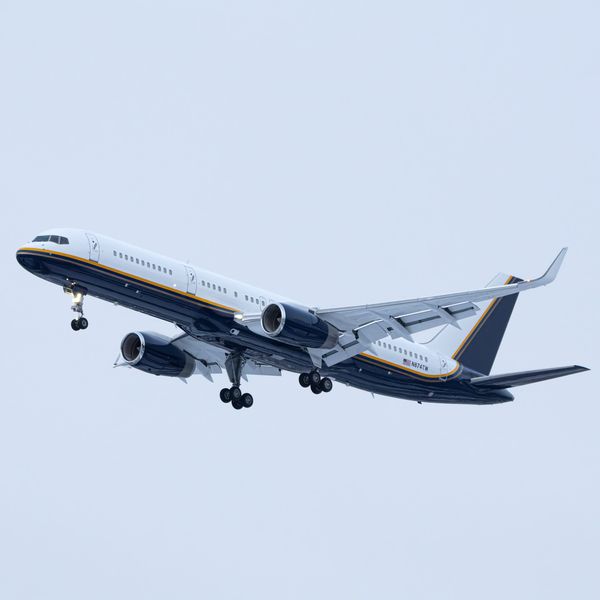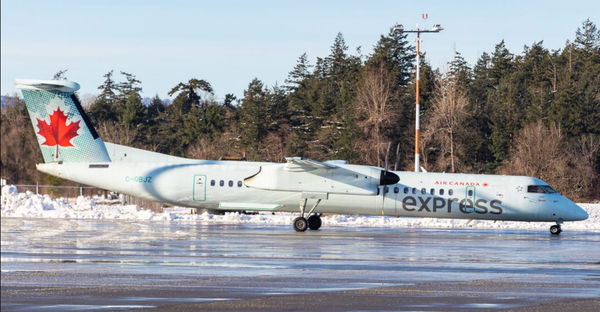Oslo-based Norwegian Airlines, a low-cost carrier, has announced a new partnership with Norsk e-Fuel, a domestic producer of Sustainable Aviation Fuel.

Norwegian has announced a partnership with Norsk e-Fuel to build a production plant in Mosjoen, a smaller village towards the northern part of the country. The plant will be the world’s first full-scale e-fuel plant. The agreement signals Norwegian's intent to use the strategic partnership to secure a long-term offtake of e-fuel; the airline also intends to gain a minor equity stake in the company by investing 50 million NOK which would prove fruitful if the plant is successful.
Geir Karlsen, CEO of Norwegian, said in light of the news, "We are moving Norwegian into the future … we commit to significantly reducing our climate impact as we take advantage of technological advances within aviation fuel. We want to make it possible for everyone to fly sustainably."

The production of e-fuels would begin as soon as 2026, and by 2030 could account for 20% of all of Norwegian's total SAF demand. In an attempt to make strides at making it possible for every passenger to fly sustainably, Norwegian has committed to reduce emissions by 45% come 2030, which this partnership will allow the airline to feasibly hit.
Norsk e-Fuel is already well funded, backed by a large, powerful group of shareholders with experience in industry and technology — including Valinor and Sunfire. The company has spent four years since its founding in 2019 on research and development and now has a major client in Norway.

As Norwegian noted in their press release, Mosjoen and the surrounding area has some of the lowest electricity prices in Europe and relies heavily on hydropower such that renewable energy access to produce e-fuel is readily available and stable.
The technology used involves taking recycled biogenic CO2 and CO2 from air capture, and ultimately converting such products into e-Fuel — all powered by renewable energy. This means that when ultimately used as fuel for aircraft, greenhouse gas emissions are reduced by 99%.
SAF production in America has remained prohibitively expensive for some airlines, due in large part to high electricity costs, which tend to be one of the biggest cost burdens. Norwegian is aiming to overcome this hurdle by using cheaper costs of electricity inputs.

The agreement also fares well for the village of Mosjoen, which is heavily reliant on industry, so local job growth will be positive. Norsk e-Fuel uses a simple motto: "Take what we have and turn it into what we need." Evidently, by using Mosjoen which has a lot of naturally-occurring inputs, they can produce the necessary e-Fuel for Norwegian without a heavy reliance on assorted inputs sourced elsewhere.
The airline and Norsk e-Fuel aim to finalize the agreement within the next few months.
KLM Cancels 92% of Amsterdam Flights in Historic Winter Storm Crisis » This Week in Aviation: The 10 Stories That Mattered Most » U.S. Carriers Sound Alarm Over Dublin’s ‘Passenger Cap’ and Transatlantic Disruption »
Comments (0)
Add Your Comment
SHARE
TAGS
NEWS Norwegian Norwegian Airlines Climate SAF Sustainable Aviation Fuel Investment Partnership Green Eco-FriendlyRECENTLY PUBLISHED
 This Week in Aviation: The 10 Stories That Mattered Most
From major airline developments to aircraft updates and industry shifts, this weekly recap highlights the ten most-read aviation stories from the week of January 04.
INFORMATIONAL
READ MORE »
This Week in Aviation: The 10 Stories That Mattered Most
From major airline developments to aircraft updates and industry shifts, this weekly recap highlights the ten most-read aviation stories from the week of January 04.
INFORMATIONAL
READ MORE »
 NTSB Scrutinizes FAA NOTAM Logic Following Fatal MD 530F Canyon Crash
One week after a private helicopter plummeted into the rugged depths of Telegraph Canyon, the aviation community is reeling not only from the loss of four lives but from the glaring systemic failures it has unearthed.
NEWS
READ MORE »
NTSB Scrutinizes FAA NOTAM Logic Following Fatal MD 530F Canyon Crash
One week after a private helicopter plummeted into the rugged depths of Telegraph Canyon, the aviation community is reeling not only from the loss of four lives but from the glaring systemic failures it has unearthed.
NEWS
READ MORE »
 Air Canada Doubles Down on Regional Strength with Major PAL Airlines Expansion
In a strategic move to fortify its presence in Eastern Canada, Air Canada has officially announced its intent to significantly expand and extend its commercial partnership with PAL Airlines. As of January 8, 2026, the two carriers have signed a Letter of Intent (LOI) that not only secures regional connectivity for the next decade but also introduces a substantial fleet expansion to meet rising demand in Québec and the Maritimes.
NEWS
READ MORE »
Air Canada Doubles Down on Regional Strength with Major PAL Airlines Expansion
In a strategic move to fortify its presence in Eastern Canada, Air Canada has officially announced its intent to significantly expand and extend its commercial partnership with PAL Airlines. As of January 8, 2026, the two carriers have signed a Letter of Intent (LOI) that not only secures regional connectivity for the next decade but also introduces a substantial fleet expansion to meet rising demand in Québec and the Maritimes.
NEWS
READ MORE »



